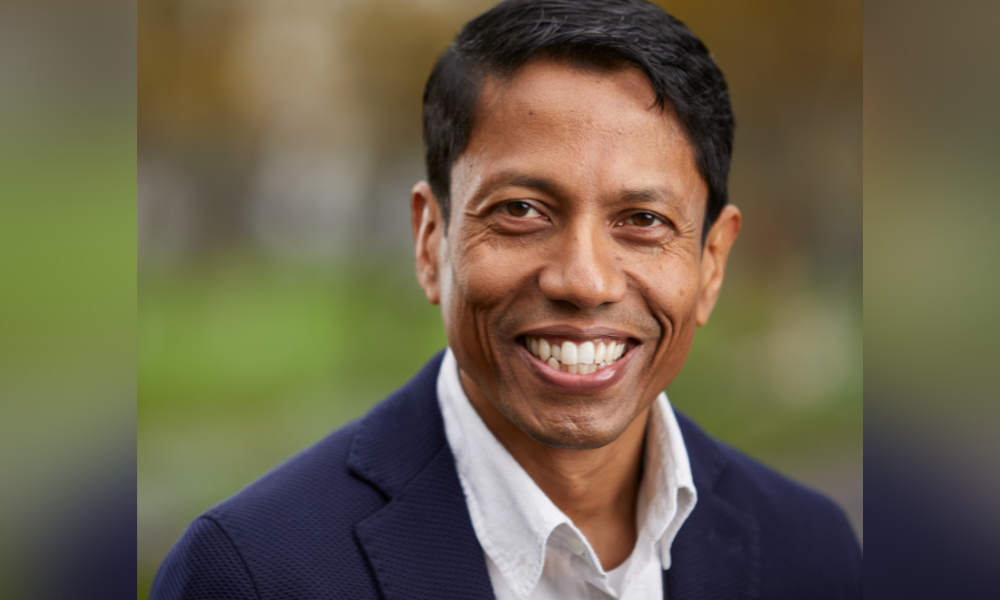
Anoop Chaudhuri came to Australia with a one-way ticket, one piece of luggage and $300 in his pocket

How many senior figures working in HR can say they started right at ground level and have experience in practically every department of the company where they now work?
Anoop Chaudhuri can. The VP of HR at Ford ANZ first came to Australia 32 years ago with a one-way ticket, a single piece of luggage and $300 in his pocket. As a child growing up in India, he had developed a passion for cars and dreamed of working in a car company. So, when he secured his first job working on the assembly line at Ford in Melbourne he was thrilled. Since then, Chaudhuri has worked in most departments in the company “because I love learning and I’ve gone through lots of amazing experiences - in manufacturing as an engineer, in purchasing, technology, and working in HR in three different countries”.
Read more: Queensland to probe response on Grosvenor Mine blast
It’s been in HR and Ford’s wellbeing and mental health programs where Chaudhuri’s had a significant impact. Not least this has been due to his own experiences of mental health that have given him greater insight and understanding on how to address these challenges for the benefit of Ford’s employees.
“Mental health is a challenging and sensitive topic. Often the first people we talk to outside of family and friends may be work colleagues. We’ve been doing ground-breaking work under the banner of Flourish, our brand for everything we do around wellbeing, physical health, mental health, financial health,” says Chaudhuri.
Flourish was launched five years ago with simple initiatives around RU OK day and has evolved over the years. It was when Ford turned to its own leaders, encouraging them to share their personal stories around mental health, that they saw the impact it had on employees.
“We found that by doing that, people felt more comfortable. It broke down barriers for them to talk about mental health,” Chaudhuri says.
One of the leaders who shared their story was Chaudhuri himself. During one of his international assignments in the US, a family member experienced mental health challenges, resulting in Chaudhuri having difficulty managing work, concentrating in a demanding role whilst also having to care for his family. On reflection, he realises that throughout all this he was neglecting his own mental health needs.
“As with many things to do with mental health issues, things add up. On one occasion, I was presenting something to the HR leadership team – something that I did very often – and it got to the point where I couldn’t speak. Words wouldn’t come out of my mouth. I had to excuse myself, go to the bathroom and throw water over my face. It was the pressure of so many things,” Chaudhuri says.
“One of the things I really appreciate about Ford, the entire management team in Australia and the whole Asia Pacific, is that they went out of their way to accommodate my needs, flexible work arrangement, providing support and guidance and reassuring me that work would still be taken care of. That the most important thing was taking care of the family and myself,” he says.
Even though it was a big setback, his family’s experience with mental health allowed Chaudhuri to understand that life is full of ups and downs. “Some of the biggest learnings come from the values in our life and for me it was about being more appreciative, more compassionate.”
Chaudhuri’s personal championing of Ford’s wellbeing pillar for the entire Asia Pacific region has seen a lot of time, energy and resources invested in establishing the Mental Health First Aid Network Group. The company has more than 100 first aiders in the workplace, who act as point of contact for anyone wanting to talk confidentially about issues they may be having.
Last year, Ford took a further step following the completion of the design process in Australia of one of their most complex models that was then going to be rolled out in Thailand.
“We found out that the launch date was a very critical and stressful time for our Thai employees. We were going from building one car to producing hundreds of cars. We decided to check in with how our workers were thinking and feeling about their task and the result was an amazing turnaround in our Thailand launch.
Read more: Queensland eases paid pandemic leave access to health, ambulance staff
“When our workers were given the opportunity to express their thoughts and views, it made the process more enjoyable, and they became less stressed about it. We took that learning and used it again with our teams in South Africa,” Chaudhuri says.
Being able to have a conversation is the starting point and really helped to surface the issue for Chaudhuri who says that the stigma associated with mental health is something that he has sought to overturn at Ford. If there is one message he wants to get out to his fellow employees, it is that “they are not alone, and help is available and accessible.”